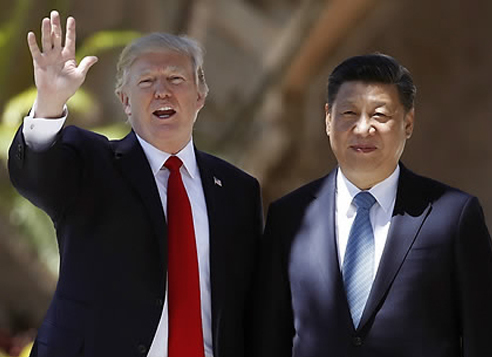China's handling of NK 'litmus test' of US-China relations: Snyder
By a2016032Published : May 7, 2017 - 09:05
How far China would go in helping change North Korea's behavior is a "litmus test" that will affect the future of the relations between Washington and Beijing, a US expert said Friday.
Scott Snyder, a senior expert on Korea at the Council on Foreign Relations, made the point in an article on the think tank's website, noting that many Chinese and American experts expect there would be limits in China pressuring the North.

The Trump administration is clearly eager to change North Korea's trajectory?in any way possible. And Beijing's role in helping do so seems to be a litmus test that will influence the future of the US-China relationship," Snyder said.
"Yet Chinese and American analysts alike point out the likely limits of China's willingness to pressure North Korea to the extent the Trump administration desires," he said.
Though Chinese analysts recognize the dangers posed by the North, they have long seen Chinese influence as limited and believe that US hostility toward North Korea is the root cause of peninsular tensions, Snyder said.
But American analysts and political leaders are increasingly frustrated that China has not cut the umbilical cord of food and energy supplies that the North depends on for its economic survival despite its political isolation, he said.
"The Trump administration ultimately expects Beijing to put enough pressure on Pyongyang to make Kim realize that the nuclear program endangers rather than assures the survival of his regime," Snyder said.
"However, this course of action imposes on China higher risks than the country has been willing to take so far. It prefers the status quo to the dangers of political instability and refugee flows across China's border," he said.
Synder said China has long struggled with a menu of unsatisfactory policy options on North Korea.
Placing the level of pressure needed to force Kim Jong-un to give up his nuclear weapons program risks the North Korean regime collapsing, leading to refugee flows and potentially a unified Korea allied with the United States, he said.
But refusing to crack down on North leads to a North Korea racing toward its nuclear finish-line, US military build-up in Northeast Asia, and even a direct military conflict with the United States, the expert said.
"The price that Beijing pays for its longstanding support for a North Korean regime that exports instability as its only sure means of regime survival is a bill that has finally come due. The Trump administration seems intent on securing outstanding payments as a principal means by which to pressure Pyongyang," he said. (Yonhap)









![[KH Explains] Hyundai-backed Motional’s struggles deepen as Tesla eyes August robotaxi debut](http://res.heraldm.com/phpwas/restmb_idxmake.php?idx=644&simg=/content/image/2024/05/16/20240516050605_0.jpg&u=20240516155018)








